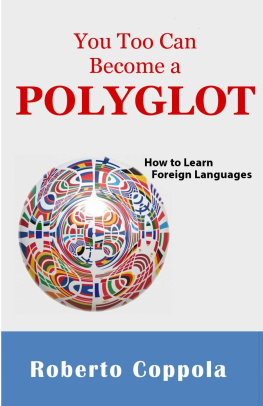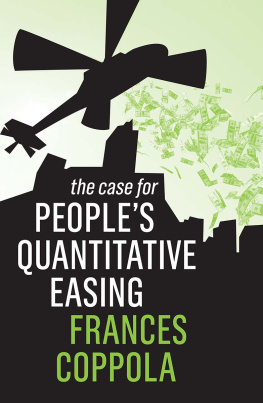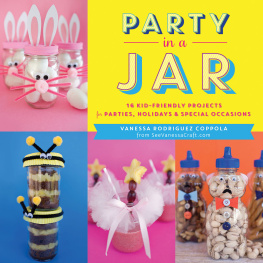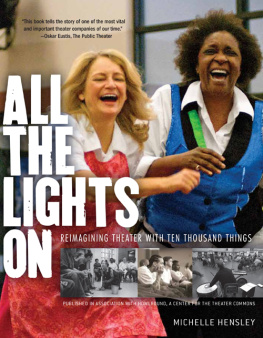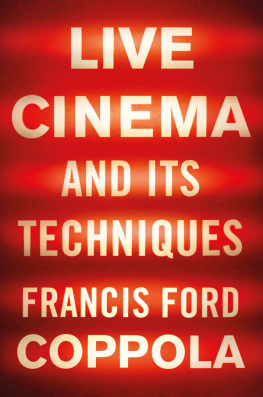Al Coppola - The Theater of Experiment
Here you can read online Al Coppola - The Theater of Experiment full text of the book (entire story) in english for free. Download pdf and epub, get meaning, cover and reviews about this ebook. year: 2016, publisher: OUP Premium, genre: Science. Description of the work, (preface) as well as reviews are available. Best literature library LitArk.com created for fans of good reading and offers a wide selection of genres:
Romance novel
Science fiction
Adventure
Detective
Science
History
Home and family
Prose
Art
Politics
Computer
Non-fiction
Religion
Business
Children
Humor
Choose a favorite category and find really read worthwhile books. Enjoy immersion in the world of imagination, feel the emotions of the characters or learn something new for yourself, make an fascinating discovery.
- Book:The Theater of Experiment
- Author:
- Publisher:OUP Premium
- Genre:
- Year:2016
- Rating:4 / 5
- Favourites:Add to favourites
- Your mark:
- 80
- 1
- 2
- 3
- 4
- 5
The Theater of Experiment: summary, description and annotation
We offer to read an annotation, description, summary or preface (depends on what the author of the book "The Theater of Experiment" wrote himself). If you haven't found the necessary information about the book — write in the comments, we will try to find it.
The Theater of Experiment — read online for free the complete book (whole text) full work
Below is the text of the book, divided by pages. System saving the place of the last page read, allows you to conveniently read the book "The Theater of Experiment" online for free, without having to search again every time where you left off. Put a bookmark, and you can go to the page where you finished reading at any time.
Font size:
Interval:
Bookmark:


Oxford University Press is a department of the University of Oxford. It furthers the Universitys objective of excellence in research, scholarship, and education by publishing worldwide. Oxford is a registered trade mark of Oxford University Press in the UK and certain other countries.
Published in the United States of America by Oxford University Press
198 Madison Avenue, New York, NY 10016, United States of America.
Oxford University Press 2016
All rights reserved. No part of this publication may be reproduced, stored in a retrieval system, or transmitted, in any form or by any means, without the prior permission in writing of Oxford University Press, or as expressly permitted by law, by license, or under terms agreed with the appropriate reproduction rights organization. Inquiries concerning reproduction outside the scope of the above should be sent to the Rights Department, Oxford University Press, at the address above.
You must not circulate this work in any other form and you must impose this same condition on any acquirer.
Library of Congress Cataloging-in-Publication Data
Names: Coppola, Al, author.
Title: The theater of experiment : staging natural philosophy in eighteenth-century Britain / Al Coppola.
Description: New York : Oxford University Press, 2016. | Includes bibliographical references.
Identifiers: LCCN 2016002200| ISBN 9780190269715 (cloth) | ISBN 9780190627263 (epub)
Subjects: LCSH: TheaterGreat BritainHistory18th century. | Science in literature. | English dramaRestoration, 16601700History and criticism. | English drama18th centuryHistory and criticism. | Satire, EnglishHistory and criticism. | Literature and scienceEnglandHistory18th century.
Classification: LCC PN2593 .C77 2016 | DDC 792.0942/09033dc23
LC record available at http://lccn.loc.gov/2016002200
For Chloe and Zachary
Havingby turnsoccupied, obsessed, challenged, reproached, exasperated, surprised, and instructed me for more years than I want to admit, the writing of this book has racked up debts for innumerable kindnesses that will prove hard to reckon accurately, and impossible to acknowledge adequately.
I could probably date the beginning of this project to the demented application essay I sent to New York University, a harebrained mathematical analysis of Invisible Cities, that, at more than fifteen years remove, now strikes me as a prescient but uncomfortably wonderstruck rhapsody on the limits of systems, quantification, and scientific thought. Thank the gods I studied with Dustin Griffin there, and the late Paul Magnuson, who taught me what the work of scholarship requires and inspired in me an abiding fascination with our period. When I moved to Fordham University to work on my doctorate, I came under the tutelage of an eighteenth-century faculty more varied and talented than I had any right to expect, the likes of which I doubt I will ever see in one place again. My thanks to Frank Boyle, Susan Greenfield, Michael Suarez, Andrew Clark, Eve Keller, and Chi-ming Yang for all I learned in seminar and conversation. As the director of the dissertation that laid the groundwork for this book, Stuart Sherman has earned my deepest gratitude. This book simply would not exist without the keenness of his insight, the precision of his commentary, the soundness of his advice, and, most of all, the ongoing generosity of his spirit.
I had the unwarranted good fortune to land a job in New York, so after packing up my office on a hand-truck and walking it two blocks down 10th Avenue from Fordham Lincoln Center to John Jay College, my intellectual life lost nothing but gained a world. I wish to thank my chair, Allison Pease, for her unflagging support and guidance, as well as my colleagues Olivera Jokic, Erica Burleigh, John Staines, JoEllen DeLucia, Caroline Reitz, and Jay Gates, who have offered timely advice and supportive readings at various stages of this project. I gratefully acknowledge the grant support I have received through John Jay College Provost Jane Bowers and the PSC-CUNY Research Fund, along with the assistance of the City University of New York Faculty Fellowship Publication Program seminar chaired by Brijraj Singh. I must also thank the students Ive had at CUNY, who have challenged me to be clearer and bolder in my thinking, both the undergraduates who have read Restoration drama with me, as well as the doctoral students who took my course in The Cultures of Natural Philosophy at the Graduate Center in the spring of 2011, especially Diana Epelbaum, Suzy Uzzilia, and Shang-yu Sheng.
Perhaps the single most important influence on this work has been the Columbia Seminar in Eighteenth-Century European Culture, which has enriched my personal and professional life immensely through the collegial friendships I have formed there. I am grateful to Elizabeth Powers for inviting me to give what at the time must have seemed like a rather oddball lecture on Newtonianism and the Harlequin Doctor Faustus pantomimes in 2009, and then for proposing that I chair the seminar the following year. It would be impossible to adequately thank everyone Ive met through the Columbia Seminar who has offered advice, shared knowledge, or sparked an idea that improved this book. But I would be remiss if I didnt acknowledge John Richetti, Jenny Davidson, Michael McKeon, Jack Lynch, Frank Felsenstein, Manny Schonhorn, Gretchen Gerzina, and Randolph Trumbach. Special thanks must go my closest collaborators and conspirators: Michael Rotenberg-Schwartz, Kathleen Lubey, Wendy Lee, Nicole Horejsi, Dan Gustafson, James Horowitz, and Stephanie Hershinow.
As I worked to revise this book into its final form, I benefited immensely from the brilliant scholars I met through the American Society for Eighteenth-Century Studies. In particular, I thank Robert Markley, Anita Guerrini, Barbara Benedict, John Bender, Tita Chico, Karen Gevirtz, David Mazella, Devoney Looser, Cristobal Silva, Rick Barney, and Jess Keiser for reading parts of this material and offering perceptive criticism and advice. I also gratefully acknowledge the support of the Folger Shakespeare Library and the Lewis Walpole Library, where I was able to conduct formative research for this project.
This book is dedicated to my beautiful children, Zachary and Chloe, who enrich my life more than I can say. I am grateful for the joy they bring to me and everyone they touch, and I am grateful to their mother, Kristy Raska, who lent her support to me for many of the years I worked on this book. Nothing would have been possible without the unflinching encouragement of my family, and I thank my brother Mike, my mother Terry, and my dear friend Alan Weeks. My father, Albert senior, for sheer love of me, actually proofread every last word of this manuscript, but it is his selfless dedication to a lifetime of teaching literature that most commands my respect and thanks.
One last debt: to my best reader, my fiercest ally, Aleksondra Hultquist, I give thanks. Your influence is felt on every page.
All the philosophies that men have learned or devised are, in our opinion, so many plays produced and performed which have created false and fictitious worlds.
(1620)
At the turn of the seventeenth century, then, Bacon critiqued the inherent theatricality of natural philosophy, as well as the unavoidable problematics of spectatorship that it entailed. According to Bacon, the laboratory is uncomfortably akin to the stage insofar as audiences for both scientific and dramatic performances are motivated by an appetite for elegant narratives, and not the messy and inconclusive true stories from nature. In making this point, Bacon diagnosed the kinds of errors to which the human understanding is inevitably prone, and which he deemed especially noxious in the scholastic natural philosophy of his day. He intended that his new organon, or new instrument of highly regimented empirical induction, would counteract this propensity and thereby reform and reinvigorate the stale sciences of his day. The sciences had stalled, he claimed, because of the
Font size:
Interval:
Bookmark:
Similar books «The Theater of Experiment»
Look at similar books to The Theater of Experiment. We have selected literature similar in name and meaning in the hope of providing readers with more options to find new, interesting, not yet read works.
Discussion, reviews of the book The Theater of Experiment and just readers' own opinions. Leave your comments, write what you think about the work, its meaning or the main characters. Specify what exactly you liked and what you didn't like, and why you think so.

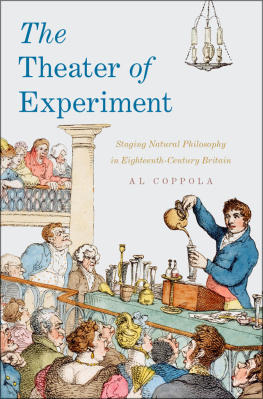
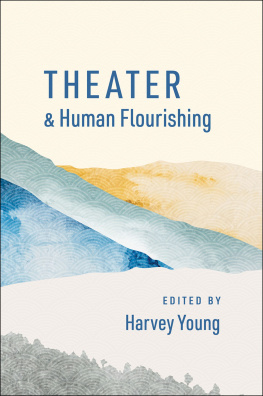
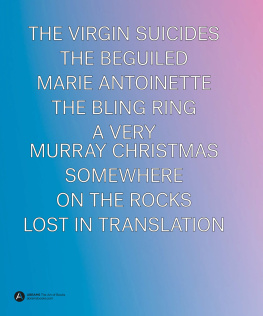
![Viola Spolin - Improvisation for the Theater: A Handbook of Teaching and Directing Techniques [1963 ed.]](/uploads/posts/book/406435/thumbs/viola-spolin-improvisation-for-the-theater-a.jpg)
